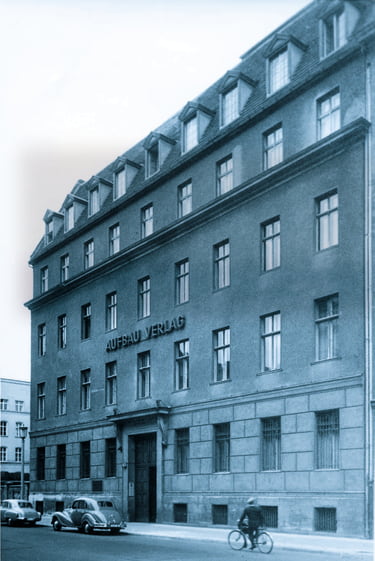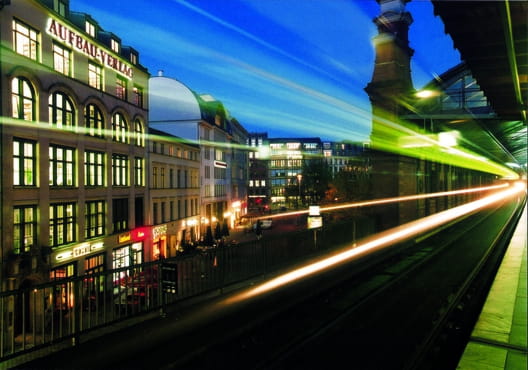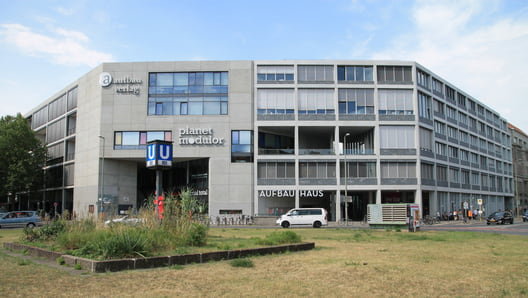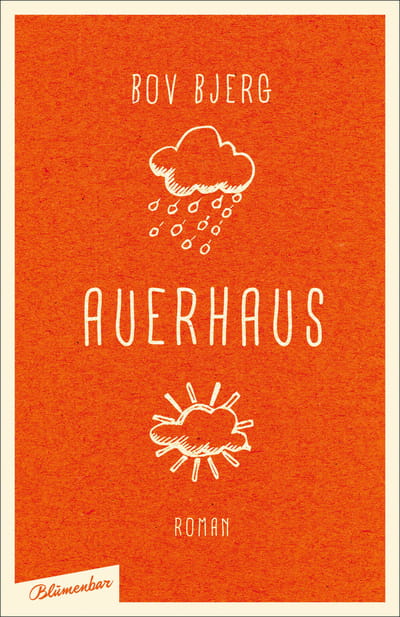Founded in the Aftermath of the Second World War
On 16 August 1945, three months after the unconditional surrender of Nazi Germany, Heinz Willmann and Klaus Gysi, who were both involved with the Communist party – particularly when it came to cultural and political matters – founded one of the first publishing houses of the postwar era in partnership with Otto Schiele and Kurt Wilhelm, two veterans of the Berlin publishing scene. Its name could be read as a manifesto, as an appeal and an expression of hope: Aufbau, meaning rebuild. A driving force was Johannes R. Becher, President of the Cultural League for the Democratic Renewal of Germany and a poet who occupied various cultural and political positions in the postwar period.
“All great periods of humanity’s rebirth were characterised by poetry, were heralded by poetry, accompanied by poetry, interpreted by poetry.” Johannes R. Becher
The fast-growing publishing team moved into offices at 32 Französischen Straße, where they got to work on a truly extraordinary list: in its first year, Aufbau printed one and a half million books by more than fifty authors. This remarkable momentum was unsurpassed in all four occupied zones. In addition to its humanist legacy, high-quality translations of literature from across the world and dedication to new German-language voices, Aufbau brought together numerous writers who had emigrated, many of whom heeded the Cultural League’s call to return to East Berlin.
“Whatever countries we ended up in, the German language had brought us solace and support. I hope that now, after my return, this language will kindle a new approach to life, a new sense of freedom in people.” Anna Seghers
A Colourful History

Aufbau’s first home: the building at 32 Französische Straße.
Aufbau rapidly advanced to become the largest publisher of literary fiction in the emergent GDR. Despite its own colourful history, it remained true to its founding values even during periods of change and renewal, gradually expanding its list. In 1991, when state-owned companies in former East Germany were privatised during the process of reunification, the Frankfurt-based real-estate entrepreneur Bernd F.Lunkewitz bought Aufbau as well as another publishing house, Rütten & Loening.
In light of the transformed market, a new paperback imprint was set up and the list was restructured in the period that followed: Aufbau remained the defining flagship for high-quality contemporary and classic literature, but expanded its list to include a collection of sophisticated non-fiction. Rütten & Loening became the home of upscale commercial literature.

Post-privatisation: the publishing house’s new home on Neue Promenade.
During this process, however, a drastic change took place: as a result of legal disputes between Bernd F. Lunkewitz and the Trust Agency (the body established by the government to privatise East German firms) regarding ownership and legal relationships, the publishing house had to file for bankruptcy in 2008. New owners were found in the Koch family, who ensured not only the company’s survival but also its independence.

The present-day offices: Aufbau Haus on Moritzplatz in Berlin-Kreuzberg.
A Glimpse of the Future
Today, Aufbau is one of the last remaining independent houses in the German publishing landscape. In 2011, the new offices were officially opened, Aufbau Haus on Moritzplatz in Berlin, a modern centre for creativity that also houses companies including the architectural and art-supplies dealer Modulor; Kai Dikhas, a gallery specialising in contemporary art by the Sinti and Roma peoples; as well as the Theater Aufbau Kreuzberg (TAK). It is also home to all the various publishing houses under the Aufbau Verlage GmbH & Co. KG umbrella: Aufbau, Aufbau Taschenbuch, Rütten & Loening, Blumenbar, Edition Braus, Die Andere Bibliothek and Ch. Links Verlag. Aufbau eBooks and audio books are now a significant proportion of sales. The enterprise is now financially successful, but the owning Koch family have largely incorporated it into a non-profit foundation, Stiftung Kommunikationsaufbau, ensuring its independence for the future.
Honorarfreie Verwendung der Autor:innenfotos ausschließlich im Kontext mit Publikationen der Aufbau Verlage und nur zu journalistisch-redaktionellen Zwecken (d.h. Buchbesprechungen, Interviews, Veranstaltungsankündigungen). Für jede darüber hinausgehende Nutzung (Produkte Dritter oder andere Zwecke) wenden Sie sich bitte an den Verlag unter info@aufbau-verlage.de. Bei jeder Nutzung muss der vollständige Copyrightvermerk (siehe Dateiname der Bilddatei oder unter dem entsprechenden Foto) angegeben werden. Online dürfen Fotos nur in einer nicht druckfähigen Bildauflösung von maximal 72 dpi gezeigt werden. Bitte schicken Sie uns einen Beleg an info@aufbau-verlage.de







